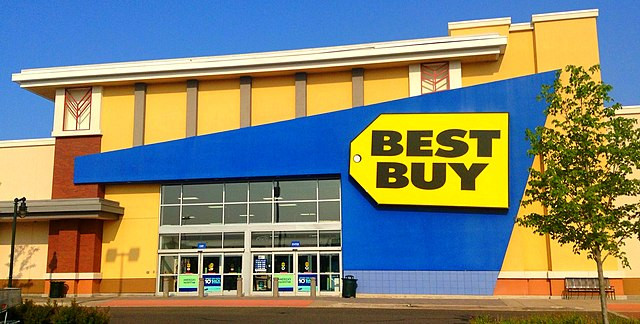Best Buy lowered its full-year sales forecast on Tuesday, citing weaker-than-expected demand for consumer electronics and subdued holiday sales expectations. The company now anticipates revenue between $41.1 billion and $41.5 billion, down from its prior projection of $41.3 billion to $41.9 billion. Comparable sales are expected to decline by 2.5% to 3.5%, steeper than the earlier estimate of 1.5% to 3%. Shares fell nearly 9% following the announcement.
CEO Corie Barry attributed the softer performance to a combination of factors, including economic uncertainty, customer hesitance, and distractions during the recent election period. "We attribute this to a combination of overall ongoing macro uncertainty, customers waiting for deals and sales, and distraction during the run-up to the election, particularly in nonessential categories," Barry said on the earnings call.
For the fiscal third quarter ending November 2, Best Buy reported adjusted earnings per share of $1.26, missing analyst expectations of $1.29. Revenue fell short at $9.45 billion, compared to the forecasted $9.63 billion and $9.76 billion in the same period last year. Comparable sales dropped 2.9%, marking the 12th consecutive quarter of negative same-store sales growth.
Key categories showed significant weakness, with appliance sales down 14.7% and entertainment falling 18.8%. Consumer electronics dropped 5.8%. Computing and mobile phone sales rose by 3.8%, while services revenue, including in-home tech installations, increased 6%. However, digital sales declined 1% year over year, reflecting broader demand challenges.
Barry noted that early holiday sales trends were slightly better than expected but maintained cautious expectations for the holiday quarter, with comparable sales forecasted to range from flat to a 3% decline. "We like what we're seeing early in the holiday - a little bit better than our expectations," she said, adding that Best Buy began Black Friday deals a week earlier to attract budget-conscious shoppers.
Post-pandemic, Best Buy has faced ongoing headwinds as consumer spending shifts back to travel and services. Inflationary pressures have further dampened discretionary purchases, with customers prioritizing essentials. Barry expressed hope that new technologies, including artificial intelligence-enabled laptops and updated iPads, would help drive future demand, though she acknowledged the impact so far has been limited.
Barry also raised concerns about potential tariff increases proposed by President-elect Donald Trump, including a 25% tariff on imports from Mexico and Canada and an additional 10% on Chinese goods. "China accounts for the highest import volumes for merchandise sold by Best Buy, followed by Mexico," Barry said. She warned that increased costs from tariffs would affect the company, vendors, and customers. "These are goods that people need, and higher prices are not helpful."
Best Buy updated its earnings guidance for the year, with adjusted earnings per share now expected to range from $6.10 to $6.25, down slightly from the previous $6.10 to $6.35. The company remains focused on adapting to shifting consumer preferences and economic conditions as it works to stabilize performance in a challenging retail environment.




